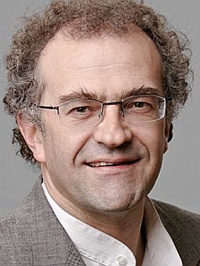The following is a translated extract from the interview in CHEManager. To read the German original version click here.
Sustainable Chemistry and Circular Economy: Innovative Technology Saves Energy and CO2CITplus: Mr Kümmerer, why is Sustainable Chemistry important for a functioning circular economy?
Klaus Kümmerer: Sustainable Chemistry sees the circular economy in a larger context. First and foremost, it asks what function or service we have. Sustainable Chemistry looks not only at individual molecules, materials or products, but at the entire material and substance flows. In addition, ethical, social and many other aspects are also considered in the sense of systems thinking. It is also asked whether there is a non-material alternative. For a functioning circular economy that successfully contributes to sustainability in the long term, we must also reduce material and product flows in terms of the diversity of their composition, their spatial and temporal dynamics and their size.
Consider, for example, the diversity of polymers, for which up to 10,000 additives are also used. Another example is textiles, which usually contain several fibres at the same time, plus many "finishing" chemicals. How are we going to recycle this successfully!Basically, global, growing cycles also require more energy to keep them going, resulting in more material losses. If recycling cannot keep up with the pace of production and development of products, recycling will not happen.
We have to see the bigger picture, otherwise we will continue to get what we already have as a result of the past 200 years: The material and substance flows are becoming ever larger and more complex, resources are being used up, the environment is being further polluted. Energy is also needed for recycling and waste is again produced that can only be used at great expense, if at all, but certainly cannot be recycled again.


